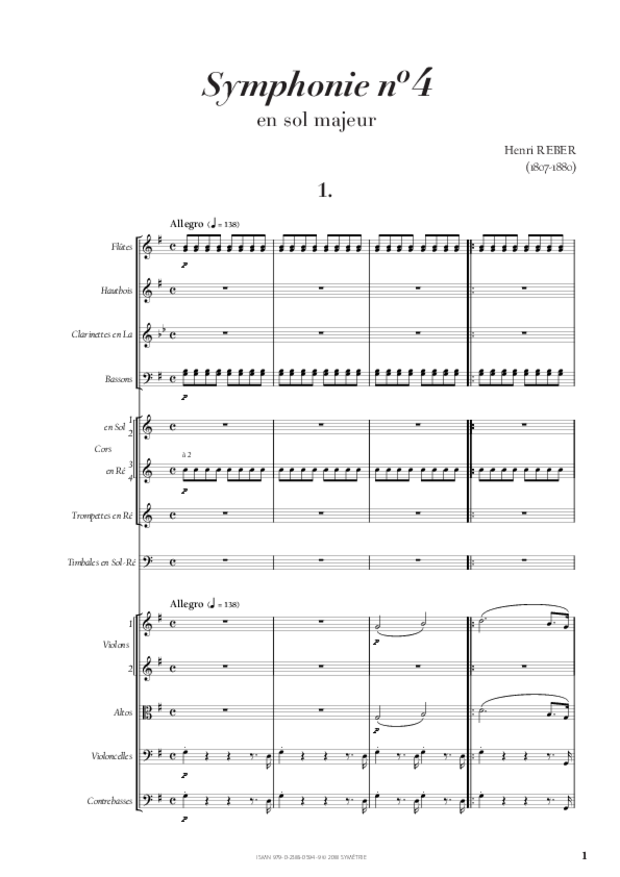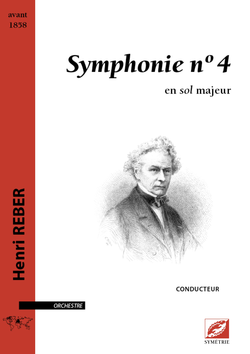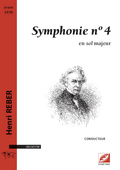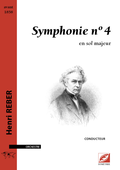Napoléon Henri Reber (Mulhouse, 1807 – Paris, 1880) is the second child of a family of Alsatian manufacturers. Largely self-educated in flute and piano playing, he was sufficiently gifted to be accepted in 1828 in the harmony class of Antoine Reicha where Jelesperger and Seuriot, the assistant teachers, taught him counterpoint and fugue. His first publications, from 1835, showed a strong inclination to instrumental music. In 1862 he succeeded Halévy as composition teacher at the Paris Conservatoire, then published the following year his Traité d’harmonie and succeeded Onslow as a member of the Académie des beaux-arts, before Berlioz, thanks to the success of his opera comique Le Père Gaillard. In 1871 he was appointed Inspector of the divisions of the conservatoires in France. As a guest of Charles Nodier’s salon, he met the great romantic writers that he would set to music. Fromental Halévy, Massenet, Gounod, Liszt, Ingres, Jean-Jacques Henner, Henri Lehmann counted among his friends, and he was as well as Saint-Saëns hostile to the modernist inclinations towards which German music was reaching. Both a talented composer and a brilliant theorist, Reber left his mark on the instrumental French school by the synthesis of the German and French tastes.
Publications
Format bibliographique à copier
Reber, Henri. Symphonie n°4, en sol majeur, Symétrie, 2018, 233 p.Reber, Henri. Symphonie n°4, en sol majeur, préface de Jean-Charles Lombart, Symétrie, 2016, 233 p.
Reber, Henri. Symphonie n° 4, en sol majeur, préface de Jean-Charles Lombart, Symétrie, 2016, 233 p.










